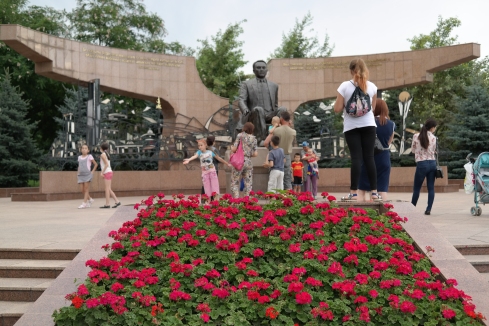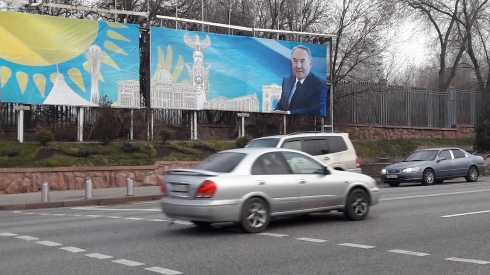In its first move, the Association of Traditional Rulers has condemned the
late Cuban leader Fidel Castro for “failing to take seriously his
responsibilities as leader, in death as in life”.
The newly-formed Association unites Central Asia’s presidents – Gurbanguly
Berdymukhammedov of Turkmenistan, Nursultan Nazarbayev of Kazakhstan, Emomali
Rahmon of Tajikistan and Almazbek Atambayev of Kyrgyzstan, together with
candidate member Shavkat Mirziyoyev of Uzbekistan.

Kazakhstan’s President Nursultan Nazarbayev immortalised in an Almaty park
The Association pointed with regret to remarks at Fidel Castro’s funeral by
his brother and current leader Raul Castro that no monuments, institutions
or streets would be named after the late leader. Nor would statues and busts
be erected in his honour.
“The leader of the revolution strongly opposed any manifestation of cult of
personality,” said Raul Castro.
“The Association upholds the clear duty of all responsible leaders to accept
the burdens of office that history has thrust upon them,” a brief statement
from the Association declared. “Fidel Castro – in his dying wish – has
betrayed that trust.”
The Association insisted that a presidential personality “was not the
property of one lone individual, but belongs to the entire nation,
encapsulating, defining and leading that nation’s very essence, for all
eternity”. It termed any rejection of that lofty responsibility as
“selfishness”.
Central Asia’s leaders have graciously taken on themselves the burden of
having streets, towns or universities named after them, the Association
pointed out, and allowing statues of themselves or their ancestors to
inspire their populations in visible locations. They have also acceded to
popular requests to have portraits of themselves in schools, offices and
other locations.
The Association does however credit the late Cuban leader with adhering to
at least one of the standards of traditional rulers. “Fidel Castro did not
absolve himself of the responsibility to ensure that his close relatives –
and his mistresses – also selflessly took on the burdens of senior
government positions.”
Tags: Almazbek Atambayev, Central Asia, Emomali Rahmon, Fidel Castro, Gurbanguly Berdymukhammedov, Kazakhstan, Kyrgyzstan, Nursultan Nazarbayev, personality cult, Raul Castro, Shavkat Mirziyoyev, Tajikistan, Turkmenistan, Uzbekistan

